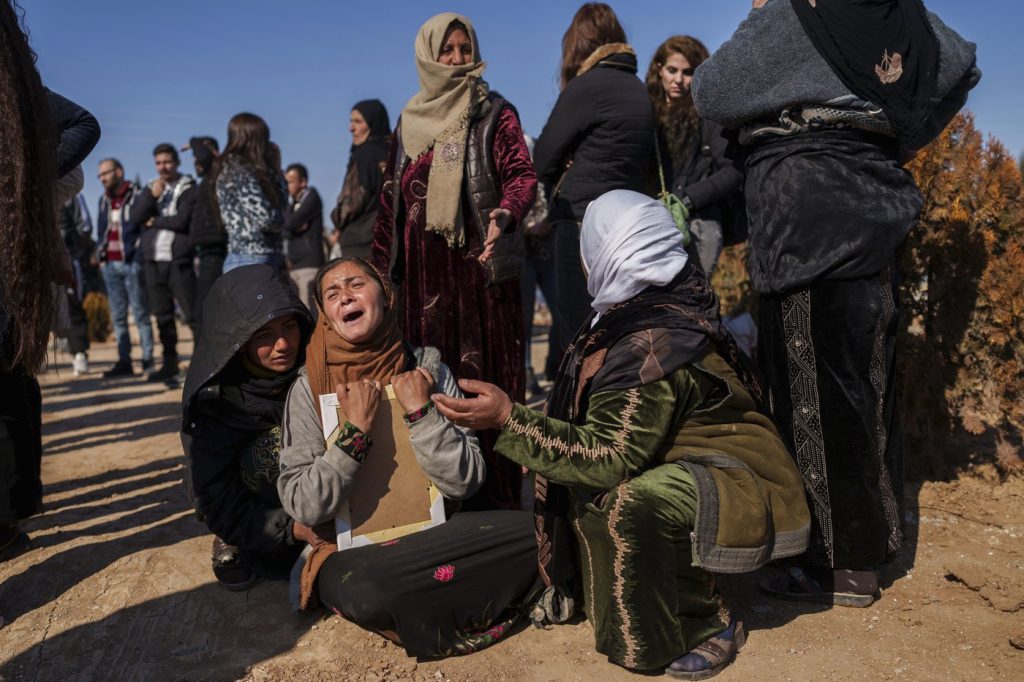In Qamishli, Syria, Kurdish people have begun to assert their identity in the wake of decades of marginalization under the Assad regime. They experienced discrimination, with many denied citizenship and misidentified as Arabs. Following the civil war, the Kurds seized an opportunity to establish cultural and administrative independence in the northeastern region, now referred to by many as "Rojava Kurdistan" or "western Kurdistan." Notable advancements include the ability for mothers to give their children Kurdish names, the establishment of Kurdish language instruction in schools, and the public celebration of Nowruz, the Kurdish New Year.
However, the future of these cultural gains hangs in the balance as negotiations are underway with the new leadership in Damascus regarding the governance of this predominantly Kurdish area. The Kurdish population constituted about 10% of Syria's population before the civil war. The Kurds seek decentralization rather than full autonomy, desiring the ability to manage their daily affairs while still being part of a unified Syria.
Despite these aspirations, the Kurds are facing a renewed threat from Turkish-backed rebels, particularly the Syrian National Army (SNA), which has launched offensives that have led to significant casualties on both sides. Over the past two months alone, fighting has displaced approximately 100,000 people, revealing the precariousness of the current situation for the Kurds.
Amira Ali, a Kurdish woman and mother from the city of Hassakeh, expressed the resolve of her community: “We have made all these gains. There is no way we will abandon them, even over our bodies and the bodies of our children.” This sentiment underscores the deep commitment of the Kurdish population to maintain their hard-won cultural achievements.
The Kurdish-led Syrian Democratic Forces (SDF), which emerged to fill the void left by Assad’s forces, now control roughly 25% of Syria. The SDF was pivotal in the fight against the Islamic State (IS), leading efforts that culminated in the 2019 capture of IS’s last territorial stronghold in Baghouz. The SDF, with support from the U.S., continues efforts to combat IS sleeper cells that remain in the region.
Many in the Kurdish community remember the oppressive policies imposed during the Assad regime, where identity cards labeled all citizens as “Syrian Arab citizens,” an erasure of the Kurdish identity. Now, they advocate for changes that recognize them as “Syrian citizens.” Mazloum Abdi, the SDF commander, emphasizes the need for a secular, civil, and decentralized Syrian state that treats all citizens equitably.
Despite their resistance and the governance structure they have established during the conflict, the Kurds face existential challenges from Turkish incursions into northern Syria. Turkey views the SDF as an extension of the Kurdistan Workers' Party (PKK), which Ankara designates as a terrorist organization. Since 2016, Turkey has conducted multiple military operations in northern Syria, capturing large swathes of territory and displacing countless residents.
The impact of ongoing violence resonates within the Kurdish community, with many displaced internally. Goulieh Abdu, a 70-year-old woman recently displaced for the second time, expressed her despair at the situation, lamenting the emotional and physical toll of displacement. Meanwhile, displaced families, like that of Elham Horo, adapt to life in makeshift shelters created from repurposed school buildings, reflecting the dire humanitarian challenges they face.
With ongoing discussions between Kurdish leaders and Syrian authorities signaling some potential for dialogue, there remains cautious optimism. The Syrian Foreign Minister, Asaad al-Shibani, recently noted that the Kurds were unjustly treated under Assad and expressed a desire to create a nation rooted in equality and justice.










